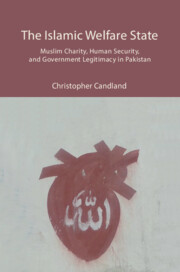Book contents
- Frontmatter
- Dedication
- Contents
- List of Illustrations
- Preface
- Note on Translations and Transliterations
- List of Abbreviations
- Part 1 Introduction
- Part 2 Piety and Public Goods
- Part 3 Pakistan
- Part 4 Charities
- Part 5 Religion, State, and Public Goods
- Afterword
- Acknowledgments
- Appendix: Charities Studied
- Glossary
- References
- Index
8 - Professional Islamic Charities
Published online by Cambridge University Press: 30 April 2024
- Frontmatter
- Dedication
- Contents
- List of Illustrations
- Preface
- Note on Translations and Transliterations
- List of Abbreviations
- Part 1 Introduction
- Part 2 Piety and Public Goods
- Part 3 Pakistan
- Part 4 Charities
- Part 5 Religion, State, and Public Goods
- Afterword
- Acknowledgments
- Appendix: Charities Studied
- Glossary
- References
- Index
Summary
It is impossible for me to detail the sums which some people receive in consequence of representations having been made of their circumstances by such as stand near the throne; and it would take up too much time to describe the presents made daily to beggars, or the eating houses which have been established for the poor.
—Abul Fazl AllamiA person documenting Muslim charity in South Asia will have some sympathy for Abul Fazl Allami, the wazir of Mughal Emperor Akbar. He was able to give the names of each of the wrestlers in Akbar's court and details of how many elephants, horses, camels, and mules were in the Mughal Emperor's stables and what each animal ate. But he found it impossible to make an account of all the acts of charity of the Emperor. Likewise, it would be quite impossible to describe the work of all Muslim charities in Pakistan, even those that are registered with government, or even to identify them all, within a single lifetime.
We can say with confidence that most of Pakistan's many registered Muslim charities are independent from political parties and governments. They are neither affiliated or associated with a political party or political movement nor administered or supported by a government. There are tens of thousands of such charities in Pakistan, as many, or more depending on the measures, as one finds in European countries.
In this chapter, we consider more than forty nonpartisan, nongovernmental registered Muslim charities. We discuss twenty charities in detail. The group is intended as a representative sample. There is no universe of charities from which one could draw a random sample. Provincial governments do make lists of registered charities. But these are partial and badly out of date, even in Punjab, the province with the best records. A sample drawn from these lists would be highly biased, as many registered charities are not active, and many active charities are not registered. Additionally, government-maintained lists of welfare associations do not include information on the religious motivation of founders or funders.
- Type
- Chapter
- Information
- The Islamic Welfare StateMuslim Charity, Human Security, and Government Legitimacy in Pakistan, pp. 142 - 180Publisher: Cambridge University PressPrint publication year: 2024



